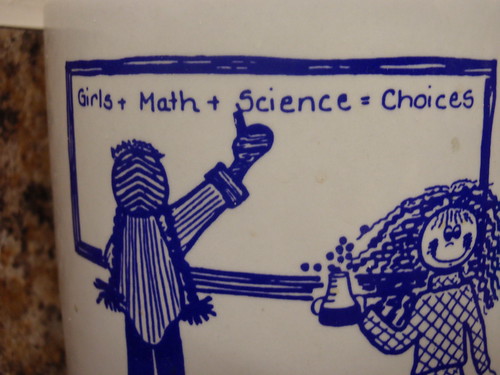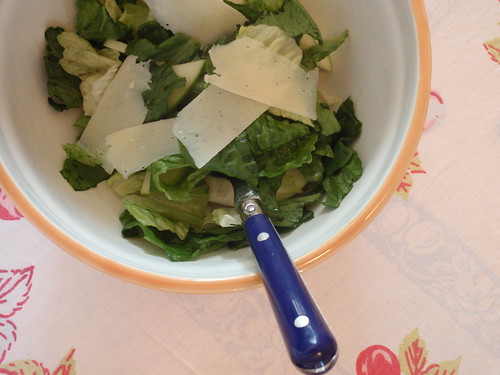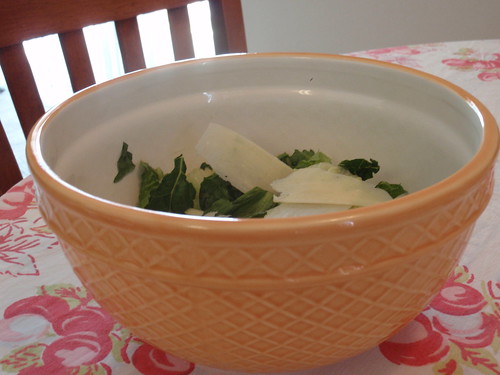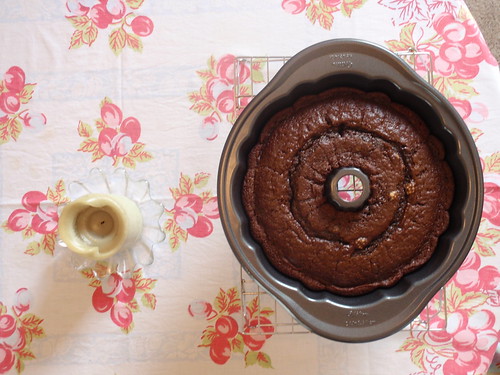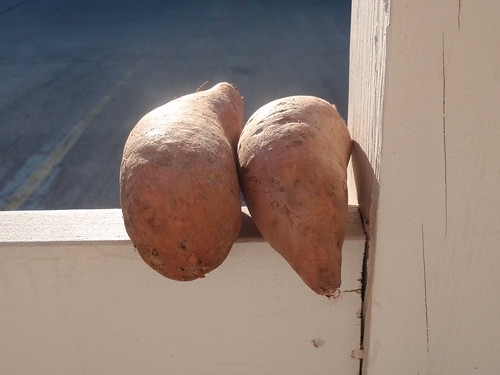This week Ammie and I are tandem-posting about gender. Oh my. Read all about her take on this theme here.
At first, I was convinced I didn’t know what gender was. It’s the sort of thing that we think we understand, but if you scratch just below the surface, it disappears into a fuzzy cloud of insubstantial ideas. Gender, I thought, might be what we in science call “a bunch of hand-waving.”
But then I decided to approach the topic a little more scientifically. While I did not go to the library and check out a dozen books about gender, I did decide to restructure my thought process so I might get a handle on what, exactly, gender might be. In the end, I came back to something I’ve always believed, whether or not there is any hand-waving or finger-wagging involved.
Let’s start with a characterization. Very loosely, gender can be thought of as all the signals that we use to determine whether a person is a man or a woman. Body shape, hairstyle, voice, clothing, smell, even something as inconsequential as a person’s drink of choice—all of these things can be clues about a person’s sex. We watch how someone walks, looking for whether their hips sway or their shoulders swagger. Unlike other animals, our sex and sexuality are hidden under layers of sometimes confusing cues. Fruit flies, for example, can just touch each other and discern with striking accuracy whether another fly is male or female. I think humans have it much harder than flies.
Of course, things get a little more complicated when we look beyond straight heterosexuals. I know I’m not the only woman to sigh with disappointment upon finding out that a charming, nice-smelling man would prefer to date another charming, nice-smelling man than me. When we’re busy interpreting all those gender cues, we’re also digging for clues about sexuality. What’s interesting to me is how desperate we feel to know a person’s gender and sexuality, even if we have no interest in getting it on with that person. We might not even want to make small talk with someone, but we NEED TO KNOW: man or woman? Gay or straight? Bi, transgendered, transexual? All of the above? None of the above?
Clearly gender is important for helping us to organize ourselves into messy and overlapping categories. But so what? What if I’m not looking for a date? Maybe I’d love a world of androgyny where we all wear potato sacks with holes cut out for our heads and arms. What does gender mean in a world like that? Gender plays a deeper, more critical role in our lives than what we wear and how we cut our hair. Gender shapes our expectations of ourselves and others, and this, I think, is where I’ve been fighting the good fight as long as I can remember.
When I was a little girl, I never dreamed of a big white wedding where some dude and I would get hitched and we’d forever be thought of as a pair. Instead, I dreamed of traveling around the world, a la my Travel Barbie given to me by my grandmother. There was no guy involved in these fantasies, it was just me, Barbie, and her pink striped traveling suit. I dreamed of a life of opportunity and choices—a life where I made the decisions that took me places and showed me the world.
Now, in my late twenties, I’ve landed somewhere between those two extremes. I’m pretty grounded by my job right now, but over the years my career ambitions have taken me to New Orleans, San Diego, Florida, New York, and most importantly thus far, Chicago. I am a domestic creature who likes to cook a homemade dinner every night and enjoys vacuuming. And there is a guy around, but only a select few understand the complicated structure of our relationship. For all others, it’s enough for them to know that we love each other and he’s been around for a while. Actually, most days that’s enough for me too.
I tell you this little digression to illustrate that I have little or no expectations of myself or others based on gender. I do not think a woman’s place is in the home, but if she wants to be there, then more power to her! I don’t think a woman has to have children to live a full and happy life, nor do I think a man does. I think a man who takes care of others is a beautiful, sexy creature, whether he cooks dinner for his family or pushes furniture around a living room for his friends.
I feel very fortunate that I have been able to pick and choose my gender battles. I’ve never felt compelled to dress in a masculine or androgynous manner, but I’ve also never felt compelled to act dumber than I am to make a boy feel better. I like my female body; I don’t mind being identified as a woman. But I also want to be seen as strong and capable of taking care of myself. To me, that’s not “being a man.” That’s being an adult. I take issue with women being called “the weaker sex” or “more emotional.” I have seen what happens when men bottle up their emotions. They explode, punch walls, drink themselves into a coma. It takes a strong person to own his feelings, to acknowledge them as part of himself, to deal with them. We are not doing our boys and young men any favors by denying them the freedom and grace to accept themselves as they are: happy, sad, angry, disappointed, hopeful. In short, as human beings.
What I really want for every little girl and boy is the opportunity for them to carve their own path as independently of gender as possible. Gender is not going away any time soon—it’s deeply entrenched in our culture—but with some effort, I think we can blunt its effects on the next generation of children. We can teach our kids that girls and boys can do lots of the same things—raise babies, cook meals, lead companies, teach schools, fly airplanes, grow tomatoes. They can love each other in an infinite number of ways. Our gender and sexuality are but one piece of the puzzle that is us, and I think we should treat it like that. It is part of our lives, but it shouldn’t run our lives. We run our lives.


